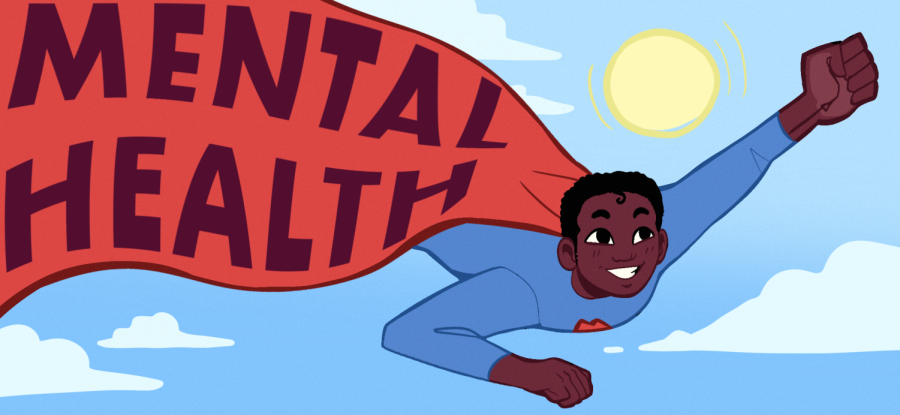Editorial | Boost Black mental health this Black History Month
February 2, 2022
For this Black History Month, a multitude of topics can be covered; whether it be the profound contribution African Americans provide the United States or the long march for civil rights, Black History Month brings to light countless matters.
However, one area receiving more attention lately is the topic of Black mental health. Long neglected, the struggle for reliable, quality mental health services is a struggle for the Black community. Black Americans — as everyone does — deserve better access to affordable and consistent mental health resources.
To achieve this, increased funding, outreach and expanding affordability must take place for equitable accessibility in mental health treatments.
Buzz editor Carolina Garibay in The Daily Illini states “seven million” of those identifying as Black or African American report having a mental illness in the past year. Karen Simms, founder of the Trauma and Resiliency Initiative in Champaign-Urbana, observes a historical structure failing the Black community’s access to mental health resources.
“There have been some structural and systemic barriers that have not allowed for us to have this whole concept of mental health or understanding of mental illness,” Simms said.
Get The Daily Illini in your inbox!
This structure, as Simms notes, leads Black folk to disregard mental health services as weak, suggesting it’s better to be seen as “strong and resilient.” Still, the past and present show African Americans could benefit the most from better mental health resources.
Economic inequality also plays a large role in this predicament. A report from McKinsey & Company found “Today the median annual wage for Black workers is approximately 30%, or $10,000, lower than that of white workers.” With this economic gap, it’s an easy assumption that an economic hurdle prevents Black Americans from accessing mental health services.
Similarly, COVID-19’s effect on any psyche has been disastrous. In a study from the Kaiser Family Foundation, throughout the pandemic “about 4 in 10 adults in the U.S. have reported symptoms of anxiety or depressive disorder … up from one in ten adults who reported these symptoms from January to June 2019.”
The study, correspondingly, asserts COVID-19 “disproportionately” affected people of color — particularly Black and Latino folk. Oftentimes concentrated in essential and frontline jobs, as the McKinsey & Company report uncovered, these low-income, stressful jobs prevent people of color from accessing necessary mental health services.
The situation for other Black folks — including Black men, women and trans women — is, likewise, immensely demanding.
Culturally, Black men are depicted as resistant to therapy. According to the American Psychological Association, the proper outreach for Black men often is discovering a comfortable context — not necessarily encouraging traditional therapy. Therefore, comfortable spaces to discuss “feelings and trauma” are needed to genuinely assist them.
For Black women, problems arise believing one can handle the illness by themself and distrusting health care providers who can’t relate to your experience. Still, mental illness is never a solo mission for anyone — to heal, mental health assistance is required.
Additionally, for Black trans women, the problem expands beyond inaccessibility. In 2019, the Human Rights Campaign reported “at least 26 transgender or gender-nonconforming people were killed in the U.S. — 91% of them Black women.” With their lives at risk, Black trans communities are sadly met with rejection from “society and family.”
Shana Williams, clinical services coordinator at the Attic Youth Center in Philadelphia states “The average lifespan of a Black trans woman is 35 years old.”
“Being a Black person who already has to navigate oppressive systems, with the added layer of being trans, leads to another way to be discarded, shunned, and not supported,” Williams said. Besides an immense need for LGBTQ+ therapists, an overall demand exists for therapists responding to Black folk.
For too long, society has overlooked Black mental health. Subsequently, there exists a silent epidemic affecting people of color who can’t access crucial mental health resources due to economic and cultural reasons. Society must solve these issues through proper outreach and close the economic gap before other Black Americans lose their life due to substandard and inaccessible mental health resources.







